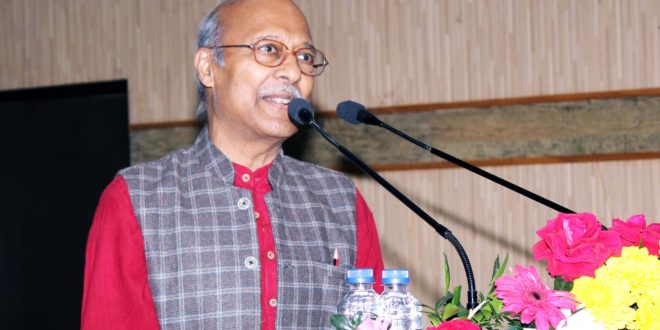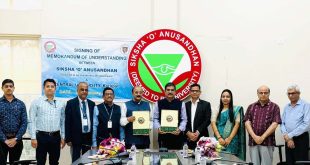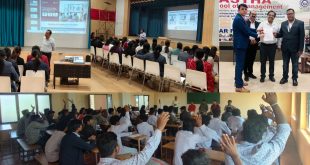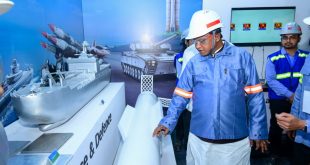Bhubaneswar: A curriculum intended to transform an academic institution rested on three pillars—head, hand and heart. But it was not working, an eminent academic has said.
“Many curricula have enough of the head, little of the hand and almost none of the heart,” Prof. Rajeev Sangal, Professor Emeritus, Indian Institute of Information Technology, Hyderabad, said while delivering a lecture on ‘Transforming Academic Institution’ at Siksha ‘O’ Anusandhan on Tuesday.
Prof. Sangal said his experiment to reverse this process by putting practice before theory had led to remarkable success at IIIT, Hyderabad.
“In many institutions, students are taught theory first, followed by a bit of practical. They mugged the material to pass the examination without internalizing the teaching,” he said.
Prof. Sangal, who served as Professor at IIT Kanpur, Director, IIT BHU, Varanasi, Director, IIIT, Hyderabad and Vice-Chancellor, BHU, said “for any education to be successful, the first quality a learner must possess is an intense desire to learn.”
“But unfortunately, such intense desire is fading away,” he said.
Discussing the subject as to how to make an institution great, Prof. Sangal focused on three aspects—a layer of process and system and a layer of cultural openness striving for excellence below it. Finally, there should be the most important layer of universal human values which should form the core, he said.
Prof. Sangal was introduced to the audience by Prof. Pradipta Kumar Nanda, Vice-Chancellor of SOA, while Prof. Jyoti Ranjan Das, Dean (Students’ Welfare), welcomed the guest. Prof. Damodar Acharya, Chairman of SOA’s Advisory Board and former Director, IIT Kharagpur, spoke about Prof. Sangal’s pioneering effort in advocating the inclusion of universal human values in the engineering curriculum.
Prof. Nachieketa K. Sharma, SOA’s Director, University Outreach Program, proposed the vote of thanks. Deans, faculty members and students from SOA’s various institutions attended the lecture.
 Update Odisha-Latest Odisha News I Breaking News Get latest news on Odisha, Govt. Jobs, OSSC, OPSC, Entertainment, Crime, Sports, and Education
Update Odisha-Latest Odisha News I Breaking News Get latest news on Odisha, Govt. Jobs, OSSC, OPSC, Entertainment, Crime, Sports, and Education



